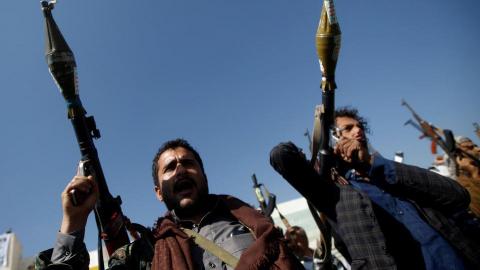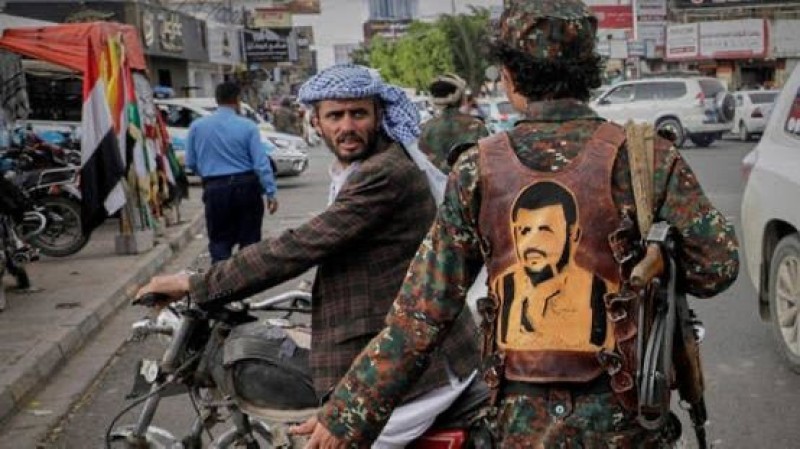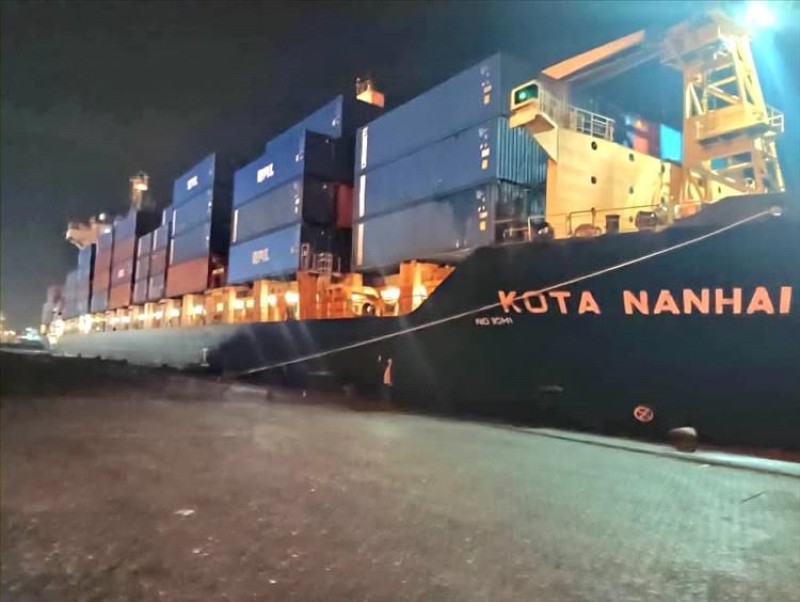Yemen conflict is leading to country's collapse, UN warns


The U.N. humanitarian chief warned Tuesday that civil war is causing Yemen to spiral toward total collapse with the threat of famine increasing and over 55,000 suspected cholera cases since late April.
Stephen O'Brien told the U.N. Security Council that "Yemen now has the ignominy of being the world's largest food security crisis." More than 17 million people desperately need food, including 6.8 million who are "one step away from famine," he said.
"The people of Yemen are being subjected to deprivation, disease and death as the world watches," O'Brien warned.
He said the country's "spiral downwards towards a total social, economic and institutional collapse" is a direct consequence of actions by fighters loyal to the former president and Shiite Houthi rebels and their supporters.
But it "is also, sadly, a result of inaction — whether due to inability or indifference — by the international community," he said.
O'Brien called for urgent action "to stem the suffering" in the Arab world's poorest nation, stressing that if there was no conflict "there would be no descent into famine, misery, disease and death."
But the U.N. envoy for Yemen, Ismail Ould Cheikh Ahmed, told the council that serious negotiations on the first steps to a cessation of hostilities have been slow and the key parties are reluctant to even discuss the concessions needed for peace.
"I will not hide from this council that we are not close to a comprehensive agreement," he said.
Yemen, which is on the southern edge of the Arabian Peninsula, has been engulfed in civil war since September 2014 when Houthi rebels swept into the capital of Sanaa and overthrew President Abed-Rabbo Mansour Hadi's internationally recognized government.
In March 2015, a Saudi-led coalition, backed by the United States, began a campaign against Houthi forces allied with ousted President Ali Abdullah Saleh in support of Hadi's government. Since then, the Iranian-backed Houthis have been dislodged from most of the south, but remain in control of Sanaa and much of the north.
Cheikh Ahmed said violence is continuing on numerous fronts, much of it focused on the western coastline where pro-government forces are attempting to make progress toward the port of Hodeida and inland toward the city of Taiz. Violence is also continuing in the border area between Yemen and Saudi Arabia, he said.
He urged the Security Council "to strongly convey to the parties that they need to engage immediately with the United Nations to agree on steps to avoid further bloodshed, to halt the slide towards famine and to recommit to a peaceful end to the war."
A group of 22 international and Yemeni humanitarian and human rights organizations — including Save The Children, Oxfam and the International Rescue Committee — also called on the Security Council to end its year-long inaction on Yemen and take action to bring about an immediate cease-fire and end the country's humanitarian crisis which is now "the largest in the world."
Cheikh Ahmed and O'Brien stressed that the conflict now threatens access to the port of Hodeida on the Red Sea, a lifeline for most of Yemen's population.
Cheikh Ahmed said that during his recent visit to the region he made clear to both parties that the spread of fighting to Hodeida would threaten the flow of desperately needed food and medical supplies and lead to "a devastating loss of civilian life and infrastructure."
In addition, over 1 million civil servants haven't been paid for months, which O'Brien said is affecting more than 8 million people and pushing more and more families toward poverty and starvation.
Cheikh Ahmed said he has proposed a compromise which would allow the continued flow of commercial and humanitarian supplies through Hodeida "and ensure the end of any diversion of customs revenues and taxes so that they can be used to support salaries and services rather than the war or personal benefit."
Under his proposed agreement, Cheikh Ahmed said, parallel negotiations would take place on avoiding military clashes in Hodeida and resuming salary payments nationally to all civil servants. "Yet even serious negotiations of these first steps have been slow to start," he said.UN

Sana’a – The occupied Yemeni capital Sana’a is witnessing mounting economic panic and a sharp collapse in the real estate market…

Aden – The vessel Kota Nanhai departed Al-Mualla Container Terminal at Aden Port this evening after completing the unloading of 457 standard…

Aden — Yemen’s Presidential Leadership Council Chairman Rashad al-Alimi held talks with Central Bank Governor Ahmed Ghalib to review th…